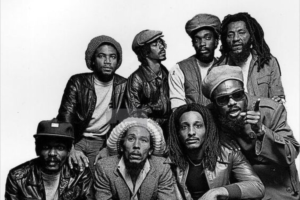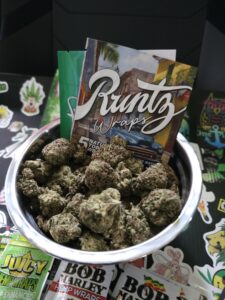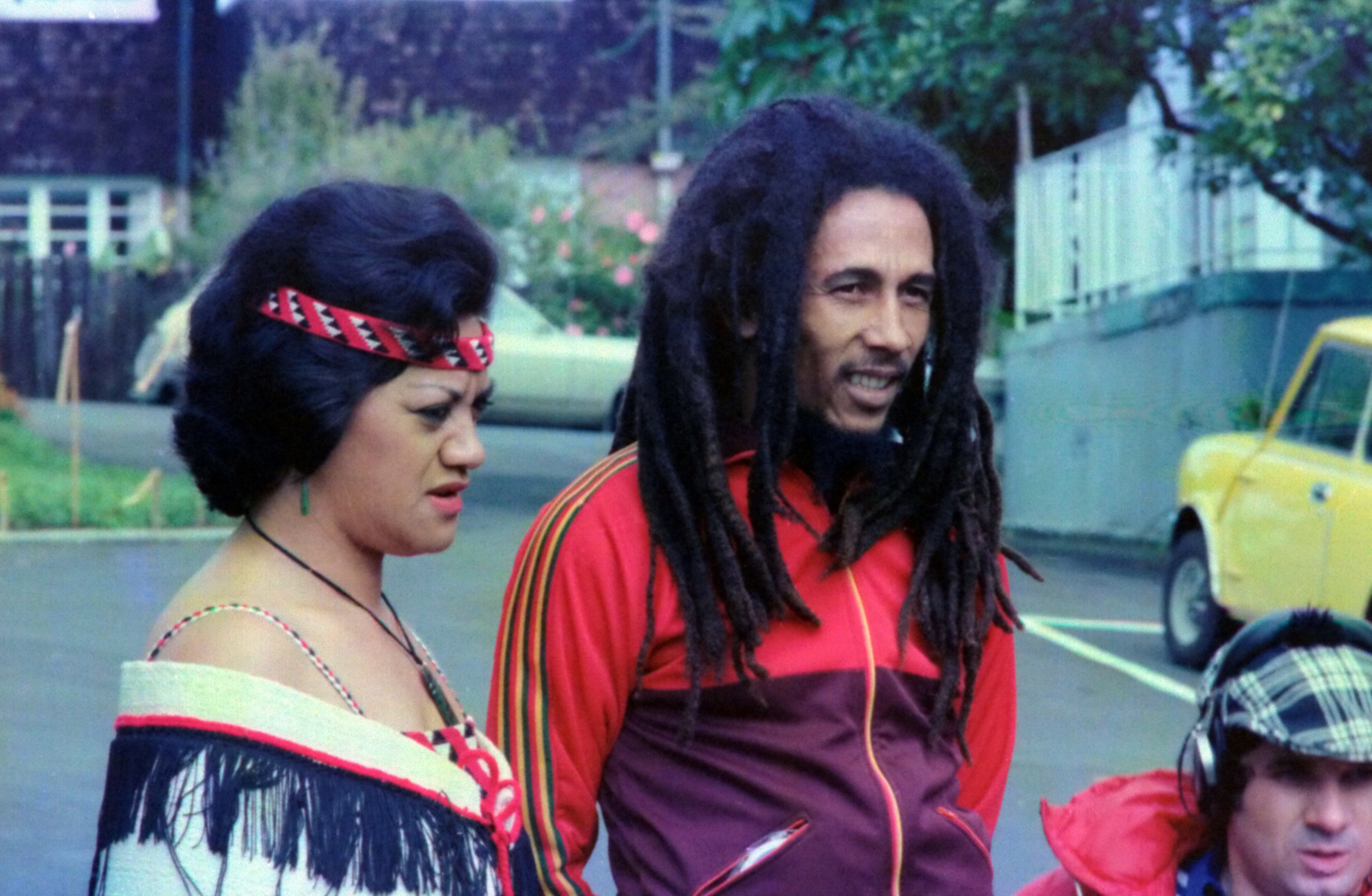
Bob Marley stands as one of the most influential musicians of the 20th century, not just for his unparalleled contribution to music but also for his profound social and political impact. His association with cannabis, rooted in his Rastafarian beliefs, has become almost as legendary as his music, intertwining with his legacy in complex and meaningful ways. This article delves into Marley’s life, his music, his spiritual and cultural beliefs about cannabis, and how these elements have contributed to his enduring status as a global icon.
Table of Contents
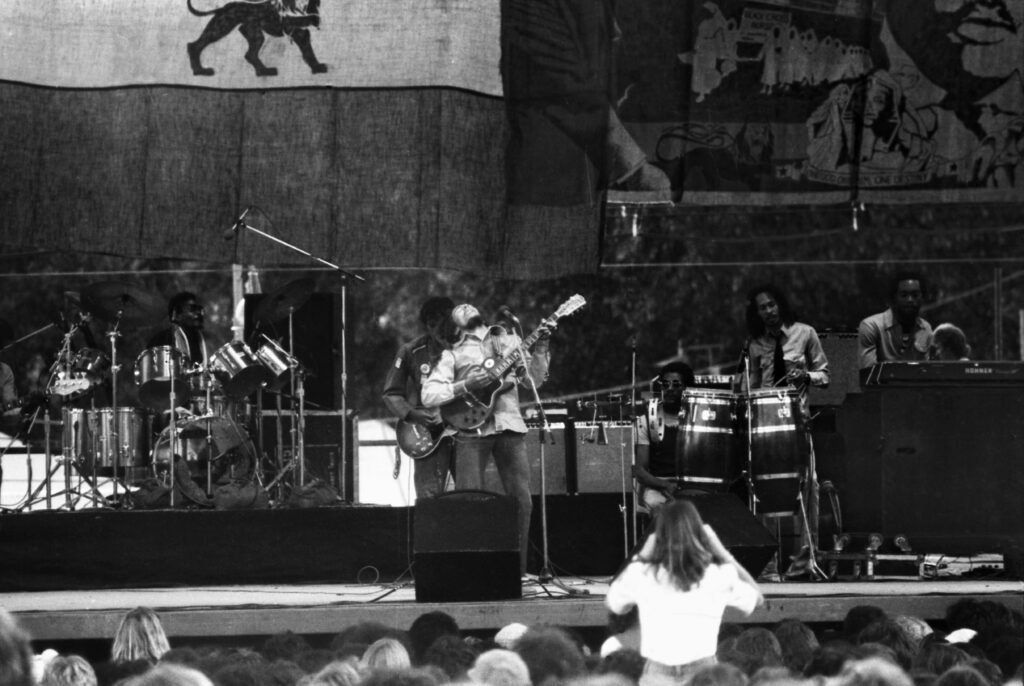
The Genesis of Reggae: Bob Marley’s Musical Odyssey
Bob Marley, born on February 6, 1945, in Nine Miles, Saint Ann Parish, Jamaica, grew up immersed in the island’s rich musical culture. Despite humble beginnings, his passion for music propelled him from a small village to global acclaim. Marley’s early life in Jamaica was filled with the sounds of ska, rocksteady, and eventually reggae, all of which influenced his unique musical style. His rise to fame was marked by his ability to blend deeply personal and socio-political themes into his music, creating anthems that resonated worldwide. Marley’s journey is a powerful narrative of talent, perseverance, and the universal messages of love, unity, and justice.
Rise to Stardom and Reggae Revolution
Bob Marley’s journey to international superstardom began in the late 1960s with the formation of The Wailers, alongside his friends Peter Tosh and Bunny Wailer. The group’s evolution from ska and rocksteady to reggae marked a significant shift in Marley’s music, characterized by his soulful voice and poignant lyrics. Marley’s songs became a global phenomenon, resonating with audiences worldwide due to their deep social and political messages. His music, such as “No Woman, No Cry” and “Get Up, Stand Up,” was a clarion call for peace, unity, and social justice.
Marley’s influence extended beyond entertainment; he was a revolutionary figure who used reggae as a platform to address global inequalities and advocate for the oppressed. His artistry was a driving force behind the reggae music revolution, making him a symbol of resistance and hope for marginalized communities around the world. Marley’s legacy continues to inspire and influence countless artists and movements, cementing his place as a cultural icon.
For more on Bob Marley’s impact on reggae and his revolutionary role, visit Bob Marley’s Official Website and The History of Reggae Music.

Cannabis in Bob Marley’s Life and Music
Marley’s Personal Use of Cannabis
For Bob Marley, cannabis was far more than a recreational substance; it was a sacramental herb integral to his spiritual practice as a devout Rastafarian. Within Rastafarianism, cannabis, often referred to as “ganja,” is revered as a holy herb. It is used as a means to enhance meditation, deepen spiritual understanding, and connect with the divine. Marley viewed cannabis as a tool for introspection and enlightenment, helping him and other practitioners to achieve a state of inner peace and clarity.
His use of cannabis was deeply intertwined with his spiritual beliefs, aligning with the Rastafarian concept that ganja provides a pathway to closer communion with God, or “Jah.” This belief is reflected in both his personal life and public persona, where he often spoke about the spiritual and cultural significance of cannabis.
Cannabis as a Symbol in Marley’s Music
Cannabis frequently appears as a motif in Marley’s music and public statements. He was an outspoken advocate for its spiritual, medicinal, and healing properties, and these themes resonate throughout his work. For instance, the song “Kaya” is a direct reference to cannabis, where Marley sings about his personal connection to the herb. The lyrics and mood of the song reflect a sense of relaxation and spiritual contentment, often associated with the use of cannabis in Rastafarian practice.
Beyond specific references, the presence of cannabis in Marley’s music often serves as a metaphor for freedom and resistance against societal norms and oppressive systems. It symbolizes a natural, divine gift that contrasts with artificial and harmful societal structures. This symbolism resonated with many of his listeners worldwide, who saw cannabis as a symbol of countercultural defiance and spiritual liberation.
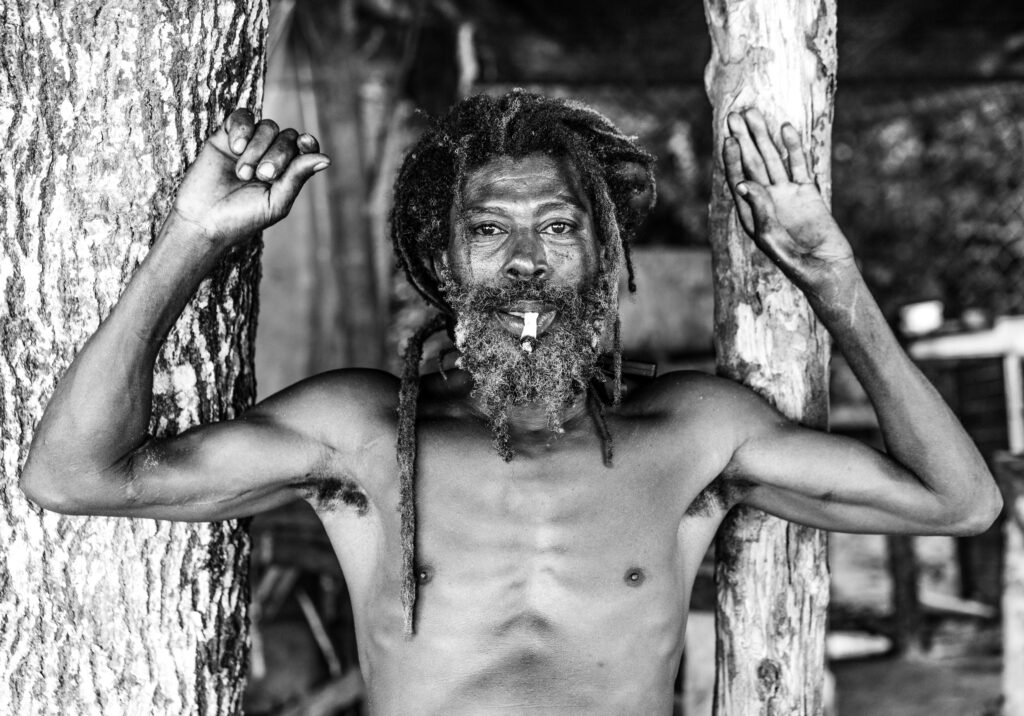
Rastafarianism and the Sacramental Use of Cannabis
The Rastafarian movement, with which Marley is intrinsically linked, venerates cannabis as a sacrament. Marley’s use of cannabis and his advocacy for its benefits were expressions of his deep spiritual beliefs and his commitment to Rastafarian principles, which include peace, love, and a connection to nature.
Rastafarianism: The Spiritual Core of Marley’s Existence
Central to understanding Marley’s impact is an examination of Rastafarianism, which imbued his music and life philosophy with depth and authenticity. This religious and social movement, characterized by its Afrocentric ideology and sacramental use of cannabis, provided Marley with a framework for spiritual exploration and expression. Cannabis, or “ganja,” served as a conduit for divine communion, fostering introspection and enlightenment. Marley’s reverential approach to cannabis was emblematic of his broader spiritual journey, reflecting a commitment to natural living and a profound connection to the divine.
Rastafarianism played a pivotal role in Bob Marley’s life and music, shaping his beliefs and artistic expression. This Afrocentric movement emphasized the importance of African heritage and identity, fueling Marley’s commitment to social justice and equality. Through Rastafarian teachings, Marley found solace and meaning, channeling his spirituality into his music and lyrics. His reverence for cannabis as a sacrament further deepened his connection to Rastafarian beliefs and principles. Marley’s embrace of Rastafarianism ultimately became the spiritual core of his existence, influencing his music and inspiring millions around the world.
Cannabis and Cultural Identity: A Symbolic Nexus
In Marley’s narrative, cannabis transcended its material form, embodying a symbol of cultural identity and resistance. His advocacy for cannabis was intertwined with a broader discourse on freedom, sovereignty, and spiritual well-being, challenging prevailing paradigms and advocating for a reconceptualization of the herb’s cultural significance. Marley’s fusion of music, spirituality, and cannabis activism played a pivotal role in reframing global perceptions of cannabis, advocating for its recognition as a substance of spiritual, medicinal, and cultural value.

Cultural Impact of Bob Marley
Influence on Music and Artists
Marley’s influence on music extends beyond reggae. He inspired generations of musicians across genres, from rock to hip hop, imbuing his music with a timeless quality that continues to resonate. His ability to blend social and political themes with deeply personal lyrics has made his music a universal language of resistance, love, and humanity.
Marley’s Role in Political Movements
Beyond his musical achievements, Marley was a figure of political significance. His concerts and public appearances were often charged with political undertones, advocating for peace and unity in times of civil unrest and conflict. Marley’s music became anthems for various social movements worldwide, echoing his call for harmony and social justice.
Legacy in Promoting Peace and Unity
Marley’s enduring legacy is not just his musical catalog but his message of love, peace, and unity. Through his music and public life, he championed the idea that music could bridge cultural, political, and racial divides, a belief that has made him a beloved figure globally.

The Artistic Influence of Cannabis: Creativity Unleashed
The interplay between cannabis and creativity was a hallmark of Marley’s artistic process, wherein the herb acted as a muse, unlocking new realms of musical and lyrical exploration. This reflective analysis posits that Marley’s cannabis-inspired creativity was not merely an aspect of his personal artistry but a phenomenon that has influenced wider artistic expressions. Through his example, Marley illuminated the potential of cannabis to enhance creativity, fostering a legacy of innovation that continues to inspire artists and musicians worldwide.
Impact of Cannabis on Music and Art
Marley’s integration of cannabis into his life and work highlighted its influence on creativity and artistic expression. The relaxed, introspective state associated with cannabis use has been credited with inspiring musical and artistic innovation, a theme prevalent in Marley’s work. His songs, infused with messages of love, social justice, and unity, transcend the traditional boundaries of music, reaching into the realms of poetry and philosophy. This legacy of creativity and freedom of expression remains a touchstone for artists and musicians around the world, illustrating the profound impact of cannabis on the creative process.
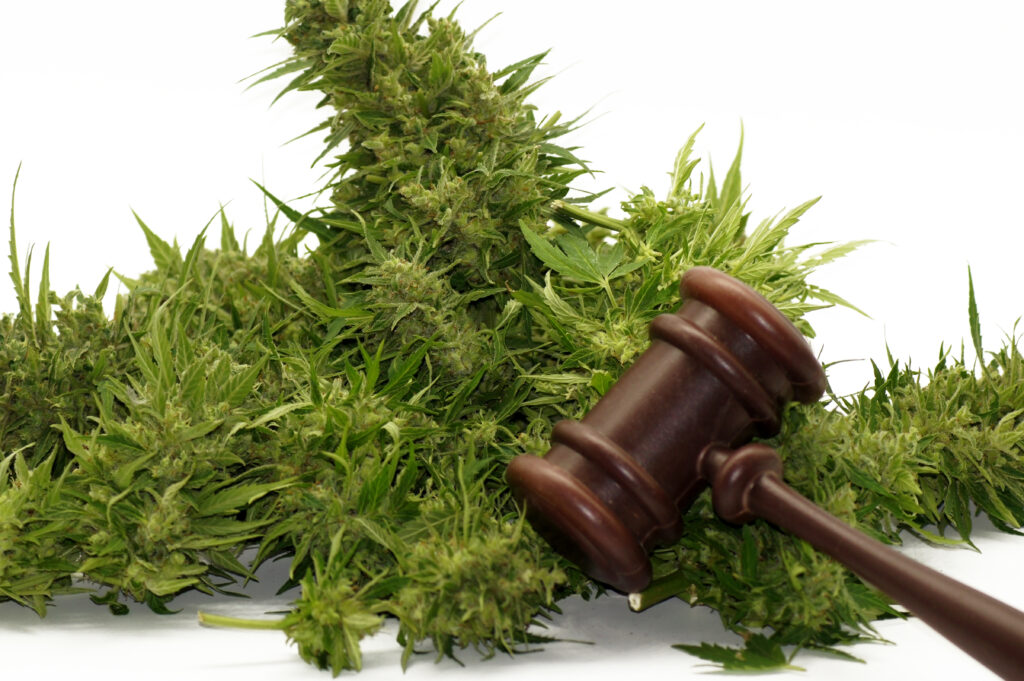
Towards Global Legalization: Marley’s Advocacy
Bob Marley’s Influence on Cannabis Perception
Bob Marley’s life and music have had a profound impact on how cannabis is perceived worldwide. He was not only a global music icon but also an advocate for the spiritual and medicinal uses of cannabis. Through his music and public persona, Marley challenged the negative stereotypes surrounding cannabis, highlighting its role in promoting peace, introspection, and healing. His advocacy contributed to a broader acceptance and destigmatization of cannabis, particularly in regions where it had been harshly penalized. This shift in perception has been pivotal in advancing the global conversation about cannabis legalization and regulation.
Marley’s association with cannabis has played a crucial role in influencing public opinion. His songs, interviews, and the Rastafarian ideology he espoused emphasized the plant’s cultural and spiritual significance. By openly discussing his use of cannabis as a sacrament, Marley helped to reframe the narrative around cannabis from one of criminality and deviance to one of cultural expression and spiritual exploration.
Bob Marley and Cannabis Branding
In the years following his death, Bob Marley’s image and legacy have continued to influence the cannabis industry. His family has actively worked to align his name with cannabis products that honor his legacy and advocate for the responsible and legal use of the plant. The Marley Natural brand, for example, offers a range of cannabis products that emphasize natural and sustainable practices, reflecting Marley’s ethos. This branding not only serves to keep Marley’s legacy alive but also helps to promote a positive image of cannabis, associating it with high-quality and ethical products.
The use of Marley’s name in cannabis branding underscores his enduring influence and the deep connection between his music, beliefs, and the global cannabis culture. By supporting the legal market, these ventures also contribute to the broader efforts toward cannabis normalization and legalization.
Impact on Global Cannabis Legalization Efforts
Bob Marley’s visibility as a cannabis advocate has had a lasting impact on the global movement towards cannabis legalization. His message of using cannabis as a tool for peace and spiritual growth resonates strongly in contemporary discussions about the plant’s legal status. Marley’s legacy has inspired activists and advocates worldwide, who continue to fight for the decriminalization and legalization of cannabis.
His influence extends beyond cultural aspects, affecting public policy and societal attitudes toward cannabis. As countries and states consider reforms to their cannabis laws, Marley’s advocacy for the plant’s medicinal and spiritual benefits provides a compelling argument for its legalization. The continued popularity of his music and the values he championed keep the conversation about cannabis legalization vibrant and ongoing.
FAQs on Bob Marley and His Cannabis Advocacy
What philosophical beliefs underpinned Bob Marley’s views on cannabis? Bob Marley’s philosophical stance on cannabis was rooted in his Rastafarian faith, viewing the herb as a sacred medium for spiritual enlightenment and a natural conduit for peace and introspection.
How did Marley’s music contribute to the discourse on social justice? Marley’s music was a powerful instrument of social commentary, weaving narratives of struggle, resilience, and hope that resonated with marginalized communities worldwide, advocating for social justice and equality.
Why is Marley revered as a cultural icon in the cannabis community? Marley is revered for his unabashed embrace of cannabis as part of his spiritual and artistic life, making him a pivotal figure in the cultural reevaluation and advocacy for cannabis.
Has Marley’s influence extended beyond music to impact cannabis legislation? Yes, Marley’s advocacy and the cultural shift his work inspired have contributed to the evolving global conversation on cannabis legalization and reform, underscoring his posthumous role in societal transformation.
What lessons can be drawn from Marley’s life and work? Marley’s legacy teaches us the power of artistic expression as a force for social change, the importance of living one’s truth, and the transformative potential of embracing one’s cultural and spiritual identity.
In Conclusion: A Reflective Homage to Bob Marley’s Legacy
Bob Marley’s legacy extends far beyond his timeless music; he was a beacon of cultural and social change, advocating for peace, unity, and the spiritual significance of cannabis. His influence continues to shape global perspectives on cannabis, making him a pivotal figure in the movement toward legalization and cultural acceptance. For a deeper exploration of how the Marley family continues to honor Bob’s legacy and promote cannabis, check out our detailed piece on The Marleys and Cannabis.
Additional Resources:
- Bob Marley: The Untold Story by Chris Salewicz – An in-depth biography exploring Marley’s life and beliefs.
- The Book of Exodus: The Making and Meaning of Bob Marley and the Wailers’ Album of the Century by Vivien Goldman – A detailed exploration of one of Marley’s most influential works.
- Catch a Fire: The Life of Bob Marley by Timothy White – An in-depth look at the personal and professional life of the reggae legend.
- Marley & Me: The Real Bob Marley Story by Don Taylor – Insights into Marley’s life and the reggae movement.
Marley’s story is not just about music; it’s about a movement. Dive into these resources to understand the full spectrum of his influence and legacy.
